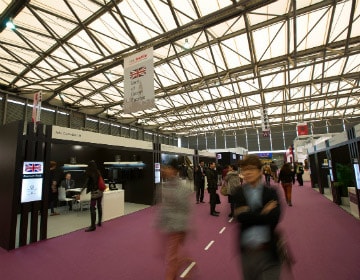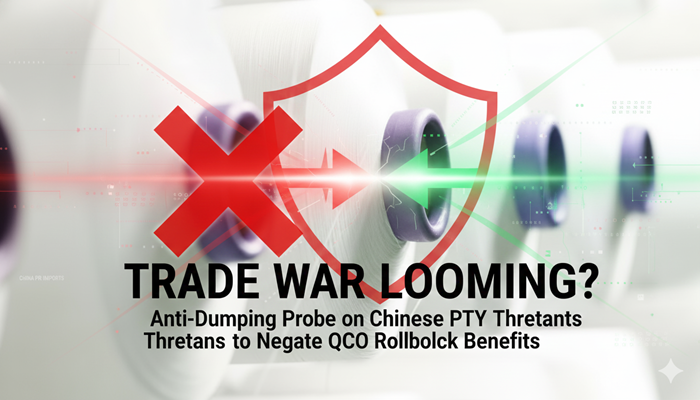
Turkey with its long history of textile production is shifting its focus to technical textiles, finding application in apparel, as well as industries such as agriculture, construction, geology, healthcare and others. Large scale companies currently producing technical textiles are mainly located in Istanbul, Bursa, Kocaeli and Tekirdağ.
According to figures from the Istanbul Textile and Raw Materials Exporters’ Association (ITHIB) technical textiles exports of Turkey have increased tremendously in the recent years and reached approximately $1.4 billion in 2012. The biggest buyers are EU countries, led by Germany with 11 per cent share. As a specific product group, non-woven fabric exports constitute 19 per cent of total technical textile exports.
Istanbul, which is emerging as a leading centre for textile fashion and design, is also a hub for taking the existing Turkish technical textile capacity to world markets. This is aided by the Istanbul Textile Research and Development Center (ITA), which was established by ITHIB to support research and development activities within the industry, and to connect the private sector, universities, research centres and national and international buyers of technical textiles.
Australia’s Woolmark has launched a new campaign highlighting the benefits of washable wool apparel to increase the demand of woolen garments. The three-year campaign will involve an effort to persuade apparel businesses to add washable wool to their ranges, as well as educating consumers about wool’s easy care properties.
The campaign with the tagline ‘Tested by Nature, Tested by Us’, comes in response to research which shows that consumers strongly associate wool with being hard to care for. “This campaign is about stopping consumers associating wool with hand wash or dry clean, and emphasizes the washability aspects of wool,” said Cathryn Lee, The Woolmark Company’s category manager (Apparel Care Group).
“All products must be tested and comply with the strict Woolmark Specifications, which will give customers assurance of quality and peace of mind.” Woolmark-certified wool labeled as ‘machine wash’ or ‘machine wash and tumble dry’ is treated to prevent shrinkage, staining or fading.
Bangladesh’s leading economists has issues a warning that amidst weakening currencies, Bangladesh exports is set to face tough competition especially in the ready-made garment (RMG) sector. Indonesia's Rupiah, Indian Rupee, Turkish Lira, South African Rand have all weakened substantially against US dollar since May last.
Ahsan H Mansur, Executive Director at the Policy Research Institute of Bangladesh (PRI), said, "Our concern is about RMG and it is set to face the toughest competition from its rival nations." Turkey is one of the largest apparel-making countries with its largest share in Europe and its currency weakening means that its export prices are becoming cheaper.
Mansur said Bangladesh's exports might fall substantially due to the weakening of currencies of Turkey and Indonesia. Bangladesh gets duty benefits as a least developed country (LDC) in the EU and it is around 12 -15 per cent. But currency depreciations in Turkey, Indonesia and India are narrowing down this difference.
Zaid Bakht, Director (Research) at the Bangladesh Institute of Development Studies (BIDS) said the new phenomenon with respect to fall in value of currencies in emerging economies should be a 'headache' for Bangladesh which will affect the country's export earnings. Bangladesh earns more than $20 billion from export of woven and knit garment.
The Bangladesh government will recruit 60 additional factory inspectors by October in line with its efforts to regain the Generalised System of Preferences (GSP) in the US market. These inspectors will review readymade garment factories.
About 30 teams of the Bangladesh University of Engineering and Technology will inspect some 1,750 factories. Four inspectors have already been appointed.
Earlier, after a devastating fire broke out in a factory, the government formed a committee comprising 11 ministers to oversee fire safety in the apparel sector with a view to resolving different problems in the country’s largest export earning sector.
The labor ministry with assistance from the International labor organisations will start inspecting the remaining garment factories that are outside the safety inspection program by the EU Accord and US Alliance by September 15.
A meeting will be held on September 7 to prepare an unified checklist of safety inspection where representatives from the ILO, Accord, Alliance, government officials, garment owners, workers representatives will also be present. Issues like implementation of a tripartite plan of action on fire and building and the steps taken to regain the GSP in the US market will also be taken up.
Björn Borg's distributor in the Netherlands has applied for a corporate reconstruction of its retail operations in the country. The plan is to implement a substantial reduction of the retail network, currently comprising 24 Björn Borg stores, against the backdrop of long-term weakness in the Dutch market...Read More
British accessories brand Cambridge Satchel Company is celebrating its fifth anniversary with a collaboration with fashion designer Vivienne Westwood. The special collaborative collection, first spotted at Westwood’s Red Label spring/summer 2014 show during London Fashion Week, is inspired by the British designer’s 1981 ‘Pirate’ collection and will launch this October...Read More
REPORT_ H&M Group sales including VAT increased in local currencies by 8 percent in the first nine months of the financial year. Sales in comparable units decreased by 2 percent. For the third quarter H&M Group sales including VAT increased in local currencies by 12 percent and sales in comparable units increased by 2 percent...Read More
 Intertextile Shanghai Apparel Fabrics, taking place from 21st to 24th October 2013, is all set to show its sustainable side. For the first time, the trade fair features an “All about Sustainability” zone and underscores its eco focus at the Planet Textiles Conference.
Intertextile Shanghai Apparel Fabrics, taking place from 21st to 24th October 2013, is all set to show its sustainable side. For the first time, the trade fair features an “All about Sustainability” zone and underscores its eco focus at the Planet Textiles Conference.
The overall theme of the “All about Sustainability” zone is ‘Recycle’, featuring recycled textiles and products. “The issue of sustainability is becoming increasingly important for Chinese consumers as they become more conscious of environmental protection. This zone, therefore, provides new opportunities for overseas companies that have strong environmental credentials to enter the Chinese market as this trend begins to take off,” explains Wendy Wen, senior general manager of fair organiser Messe Frankfurt (HK) Ltd.
overall theme of the “All about Sustainability” zone is ‘Recycle’, featuring recycled textiles and products. “The issue of sustainability is becoming increasingly important for Chinese consumers as they become more conscious of environmental protection. This zone, therefore, provides new opportunities for overseas companies that have strong environmental credentials to enter the Chinese market as this trend begins to take off,” explains Wendy Wen, senior general manager of fair organiser Messe Frankfurt (HK) Ltd.
Sustainability throughout all phases of production
As a display and educational zone, “All about Sustainability” will not only offer presentations and discussions but leading companies in the field of sustainability will present their products and services. Among them outdoor clothing supplier Patagonia, a pioneer in the use of Repreve fibres, which contain recycled materials, including post-industrial waste and used plastic bottles. Repreve fibres are produced by Unifi, another exhibitor at the fair.
Swedisch clothing giant H&M will present its ‘Conscious’ collection as well as ‘Conscious Exclusive’, a new line of party wear for spring 2013. Both collections feature garments made from organic cotton, recycled polyester and Tencel.
Hong Kong-based NGO Redress will show visitors how to promote environmental sustainability in Asia’s fashion industry by reducing textile waste, pollution and water and energy consumption. The Crystal Group, also based in Hong Kong, will display their eco-friendly jeans production processes including laser and ozone bleaching and denim waste usage. Popular recycling fabrics will also be a hot topic in the “All about Sustainability” zone.
Together with the Intertextile Shanghai Apparel Fabrics, Yarn Expo Autumn and PH Value (formerly known as the China International Knitting Trade Fair), will run concurrently. All fairs will take place at the Shanghai New International Expo Centre.
www.messefrankfurt.com.hk
 Luxury conglomerate LVMH Moët Hennessy Louis Vuitton has acquired a minority stake in London Fashion Week label J.W. Anderson, and named its eponymous designer creative director of luxury leather goods brand Loewe.The exact size of the stake in J.W. Anderson or the financial terms has not been disclosed, but LVMH did confirm that Jonathan Anderson remains the majority shareholder of the company. Rumours of a partnership between the designer and the group, which owns Givenchy, Marc Jacobs and Celine, started circulating earlier this month and made his SS14 show one of the must see presentations of LFW...Read More
Luxury conglomerate LVMH Moët Hennessy Louis Vuitton has acquired a minority stake in London Fashion Week label J.W. Anderson, and named its eponymous designer creative director of luxury leather goods brand Loewe.The exact size of the stake in J.W. Anderson or the financial terms has not been disclosed, but LVMH did confirm that Jonathan Anderson remains the majority shareholder of the company. Rumours of a partnership between the designer and the group, which owns Givenchy, Marc Jacobs and Celine, started circulating earlier this month and made his SS14 show one of the must see presentations of LFW...Read More
 Swiss luxury goods group Richemont (CFR.VX) is allegedly looking for a suitor for its leather articles brand Lancel. As main French media reported earlier this week, Richemont has appointed investment bank Nomura to advise on a possible sale of luxury leather goods brand...Read More
Swiss luxury goods group Richemont (CFR.VX) is allegedly looking for a suitor for its leather articles brand Lancel. As main French media reported earlier this week, Richemont has appointed investment bank Nomura to advise on a possible sale of luxury leather goods brand...Read More













